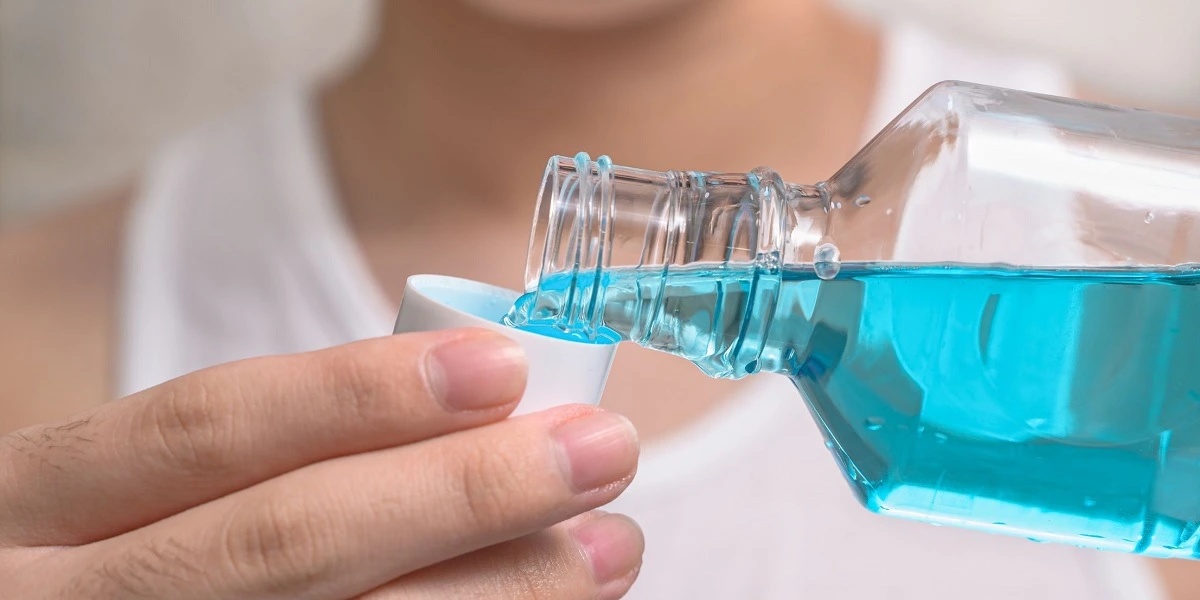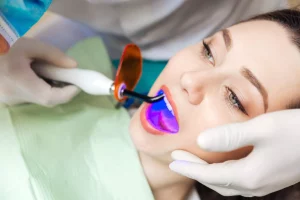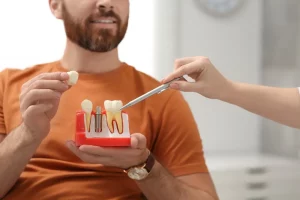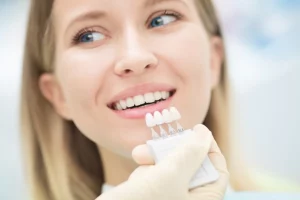In this article, we will explore whether using hydrogen peroxide on toothache is a safe and effective option, giving you the information you need to make an informed decision.
Do you suffer from a painful toothache and are looking for a quick remedy? Hydrogen peroxide is a common household item that many people ponder when it comes to relieving tooth pain.
Since the beginning of the 20th century, hydrogen peroxide has been used in dentistry. Originally, it was used as a teeth whitening agent due to its oxidizing properties. Over time, its application diversified; it also began to be used as an oral antiseptic, especially in root canal disinfection procedures and dental cleanings.
The use of hydrogen peroxide in oral health has evolved with science. Although higher concentrations were used in the past, research has now determined that more dilute solutions are effective and safe for most dental applications. In this article, we will explore whether using hydrogen peroxide for toothache is a safe and effective option, giving you the information you need to make an informed decision.
Is Hydrogen Peroxide on Toothache Safe?
Hydrogen peroxide has been used as an antiseptic and oral disinfectant for years, often to clean wounds and as a mouthwash. If used correctly, it is generally safe to treat minor discomforts in the mouth. However, it is essential to ensure the solution is 3% or less and always dilute it with water before use. It is advisable not to swallow it and rinse your mouth well with water after use.
In high concentrations, hydrogen peroxide can be corrosive and damage oral tissue. Additionally, frequent use can disrupt the natural balance of the oral microbiota, which could lead to other oral problems. Therefore, it is vital to use it with caution and not consider it as a substitute for a visit to the dentist.
While it is generally safe when used as directed for oral hygiene purposes, there are some important considerations to keep in mind:
1. Dilution
If you decide to use hydrogen peroxide for a toothache, it is essential to dilute it properly. The standard concentration you can find in most pharmacies is 3%, but it is recommended to dilute it further with equal parts water to obtain a 1.5% solution. Higher concentrations may be too harsh on the mouth and cause irritation or damage to gums and oral tissues.
2. Avoid swallowing
Never swallow hydrogen peroxide. Even a diluted solution can be harmful if swallowed. Rinse your mouth thoroughly after using it and be careful not to swallow any of the mixture.
3. Short term use
Using hydrogen peroxide as a temporary measure to relieve toothache is generally safe. However, it should not be a long-term solution. If your toothache persists, it is essential to see a dentist to address the underlying problem.
How can Hydrogen Peroxide Help with Toothache?
Hydrogen peroxide acts as an oxidizing and antiseptic agent. When it comes into contact with oral tissue, it releases oxygen, which helps clean and disinfect the affected area. This can relieve pain caused by bacteria or infections in the mouth.
Hydrogen peroxide may provide temporary toothache relief due to its antiseptic properties:
1. Bacterial control
Toothaches are usually caused by bacterial infections in the mouth. Hydrogen peroxide can help reduce the number of bacteria in the affected area.
2. Pain reduction
By killing some of the bacteria that cause the infection, hydrogen peroxide can relieve some of the pain associated with a toothache.
3. Anti-inflammatory
Additionally, hydrogen peroxide can help remove food debris and other particles that may be causing irritation in the affected area. By disinfecting and cleaning the area, inflammation and therefore pain may be reduced. However, it is essential to note that hydrogen peroxide cannot treat the underlying cause of toothache. It is a temporary solution for pain management and should not replace professional dental care.
How to Use Hydrogen Peroxide on Toothache?
If you decide to use hydrogen peroxide to relieve toothache, follow these steps:
1. Dilute the hydrogen peroxide to a 1.5% solution by mixing equal parts 3% hydrogen peroxide and water.
2. Take a small amount of the diluted solution in your mouth without swallowing.
3. Rinse your mouth with the solution or swish it around the affected area for about 30 seconds.
4. Spit out the solution without rinsing your mouth with clean water immediately afterward.
5. Repeat this process up to four times a day or as needed for temporary relief.
If your toothache persists for more than a couple of days, seek professional dental check-ups. The Benefits and Risks of Using Hydrogen Peroxide
Benefits:
1. It acts as an antiseptic, helping to eliminate bacteria.
2. It can temporarily relieve toothache.
3. It is accessible and economical.
Risks:
1. It may cause irritation or burns at high concentrations.
2. Frequent use can alter the oral microbiota.
3. It does not treat the underlying cause of the pain.
When Not to Use Hydrogen Peroxide?
While hydrogen peroxide can be effective in relieving toothache, there are situations where use is not recommended:
● In case of open wounds or mouth ulcers.
● If you have a history of allergic reactions to peroxide.
● In recent dental treatments, such as extractions or surgeries.
● If you have a history of periodontal disease or serious gum problems.
● In small children who could swallow the product.
Alternative Remedies for Toothache
While hydrogen peroxide may provide temporary relief, it is not the only option for managing toothache. Here are some alternative remedies to consider:
1. Rinsing with salt water
Gargling with warm salt water can help reduce inflammation and relieve pain. Mix half a teaspoon of salt in 8 ounces of warm water and use it as a mouthwash.
2. Clove oil
Clove oil contains eugenol, a natural anesthetic that can numb the area and relieve tooth pain. Apply a small amount to a cotton pad and place it on the affected tooth.
3. Over-the-counter pain relievers
Over-the-counter pain relievers, such as ibuprofen or acetaminophen, can help reduce pain and inflammation. Follow the recommended dosage on the label.
4. Cold compress
Applying a cold compress to the outside of the cheek near the affected tooth can help reduce pain and swelling.
5. Avoid trigger foods
Stay away from hot, cold, sweet or acidic foods and drinks that can exacerbate tooth sensitivity and pain.
To learn more about home remedies for fast relief, click here. Conclusion
Remember to use hydrogen peroxide with caution, diluting it properly and avoiding ingestion. There are also several alternative remedies to consider for toothache relief. In short, maintaining good oral hygiene practices and attending regular dental checkups is the best way to prevent toothaches and ensure your dental health.
In a pinch, hydrogen peroxide can be used as a temporary solution to relieve toothache. However, it should not replace professional dental care. If you are experiencing persistent tooth pain, it is essential to see a dentist to address the underlying problem.
Contact Us
If you have any questions about using hydrogen peroxide on toothache or other dental topics, you can contact us at Channel Islands Family Dental as well as our page on Facebook. We look forward to your visit and we will make a timely diagnosis. Our dentists in Oxnard, Santa Paula, Ventura, Newbury Park, and Port Hueneme will be able to guide you toward the best treatment to take care of your health and give you back your best smile.

















